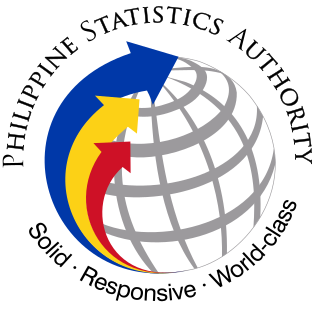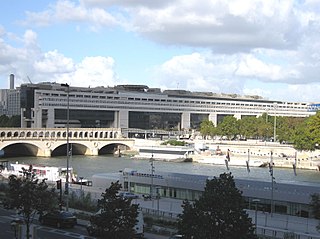
His Majesty's Home Civil Service, also known as His Majesty's Civil Service, the Home Civil Service, or colloquially as the Civil Service, is the permanent bureaucracy or secretariat of Crown employees that supports His Majesty's Government, which is led by a cabinet of ministers chosen by the Prime Minister of the United Kingdom of Great Britain and Northern Ireland, as well as two of the three devolved administrations: the Scottish Government and the Welsh Government, but not the Northern Ireland Executive.

The civil service is a collective term for a sector of government composed mainly of career civil servants hired rather than appointed or elected, whose institutional tenure typically survives transitions of political leadership. A civil servant, also known as a public servant, is a person employed in the public sector by a government department or agency for public sector undertakings. Civil servants work for central and state governments, and answer to the government, not a political party.
The French Civil Service is the set of civil servants (fonctionnaires) working for the Government of France.

The Philippine Statistics Authority is the central statistical authority of the Philippine government that collects, compiles, analyzes and publishes statistical information on economic, social, demographic, political affairs and general affairs of the people of the Philippines and enforces the civil registration functions in the country.
The Civil Service of Ireland is the collective term for the permanent staff of the departments of state and certain state agencies who advise and work for the Government of Ireland. It consists of two broad components, the Civil Service of the Government and the Civil Service of the State. Whilst these two components are largely theoretical they do have some fundamental operational differences.
The civil service in Malaysia is pivotal around Article 132 of the Constitution of Malaysia which stipulates that the public services shall consist of the Federal and State General Public Service, the Joint Public Services, the Education Service, the Judiciary and the Legal Service and the Armed Forces.
The Deutsche Gesellschaft für Internationale Zusammenarbeit (GIZ) GmbH, often simply shortened to GIZ, is the main German development agency. It is headquartered in Bonn and Eschborn and provides services in the field of international development cooperation and international education work. The organization's self-declared goal is to deliver effective solutions that offer people better prospects and sustainably improve their living conditions.

The Northern Ireland Civil Service is the permanent bureaucracy of employees that supports the Northern Ireland Executive, the devolved government of Northern Ireland.

The Australian Public Service (APS) is the federal civil service of the Commonwealth of Australia responsible for the public administration, public policy, and public services of the departments and executive and statutory agencies of the Government of Australia. The Australian Public Service was established at the Federation of Australia in 1901 as the Commonwealth Public Service and modelled on the Westminster system and United Kingdom's Civil Service. The establishment and operation of the Australian Public Service is governed by the Public Service Act 1999 of the Parliament of Australia as an "apolitical public service that is efficient and effective in serving the Government, the Parliament and the Australian public". The conduct of Australian public servants is also governed by a Code of Conduct and guided by the APS Values set by the Australian Public Service Commission.
The Public Service of Canada is the civilian workforce of the Government of Canada's departments, agencies, and other public bodies.
In politics, a revolving door is a situation in which personnel move between roles as legislators and regulators, on one hand, and members of the industries affected by the legislation and regulation, on the other, analogous to the movement of people in a physical revolving door.
The Ministry for Women (Māori: Manatū Wāhine) is the public service department of New Zealand charged with advising the government on policies and issues affecting women. It was formerly called the Ministry for Women's Affairs (MWA), but it was announced that the name would be changed to Ministry for Women in December 2014. The minister in charge of the department is the Minister for Women (previously Minister for Women's Affairs), currently Jan Tinetti.
The Public Service Commission of Canada is an independent government agency that safeguards merit-based hiring, non-partisanship, representativeness of Canada's diversity, and the use of both official languages in the Canadian public service. The PSC aims to protect the integrity of hiring and promotion within the public service. As well, the Commission works to protect the political impartiality and non-partisanship of public servants. The Commission develops staffing policies and provides guidance to public service managers and recruits Canadians into the public service. To ensure the staffing system in the government is properly maintained, the PSC has the authority to audit and investigate to ensure departments and managers make improvements. While typical government departments are headed by Ministers, the PSC is an independent agency that is headed by a President who reports to the Canadian Parliament.
In Italy the Senior Civil Service or "la dirigenza" is the set of high-ranking executives (“Dirigenti”) who are in charge of the top and middle management of national or local governmental offices.
The Civil Services refers to the services performed by government civil servants who constitute the permanent executive branch of the Republic of India. Elected cabinet ministers determine policy, and civil servants carry it out.

The Department for Education (DfE) is a department of His Majesty's Government responsible for child protection, child services, education, apprenticeships and wider skills in England.

The General Inspectorate of Finance or Inspection générale des finances (IGF) is an interdepartmental auditing and supervisory body in France. Its general mission is to provide oversight, audit, analysis, consulting and evaluation services in administrative, economic and financial matters. In the recent years, the IGF has been at the head of the movement of modernisation of the state.

Corruption in Azerbaijan is considered high and occurs at all levels of government. In Transparency International's 2022 Corruption Perceptions Index, which ranked 180 countries from those perceived to be least corrupt to those perceived to be very corrupt, Azerbaijan was ranked 128, compared to 45 for its northwestern neighbor Georgia and 58 for its western neighbor Armenia. In the Azerbaijani laundromat money-laundering scheme, $2.9 billion was paid to foreign politicians and Azerbaijani elites by companies linked to Azerbaijani ruler Ilham Aliyev, government ministries, and the International Bank of Azerbaijan between 2012 and 2014. Azerbaijan is a member of Group of States Against Corruption (GRECO) and OECD's Anti-Corruption Network.
The Ministry of Labour, Social Security and Third Sector, commonly referred to as the Ministry of Labour, is a government ministry responsible for policy formulation, industrial relations, acting as a secretariat to the Social Partnership, and the other overall administration and coordination of all operations falling under the Minister of Labour’s portfolio.
The Public Services Commission of Ghana is an independent, constitutionally-mandated, human resource planning institution tasked with managing the workforce of the Ghanaian public sector in a holistic manner.







